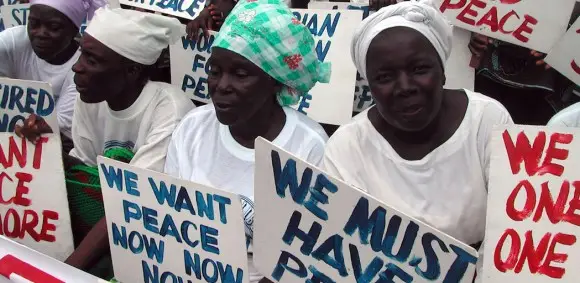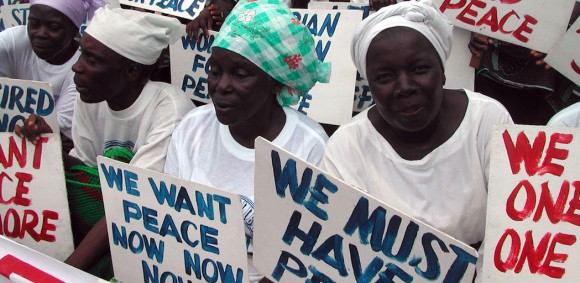On March 25, 2024, I received the call that changed the course of my public life: I had been appointed Commissioner of the Township of Congo Town. What began with the celebration soon transitioned into a demanding journey of leadership, learning, and rebuilding amid great challenges.
By Edward Horton Lahai, Commissioner, Township of Congo Town, contributing writer
The post Liberia: Transforming Local Governance with Action, Not Words appeared first on FrontPageAfrica.
Introduction: Liberia’s Local Governance Awakening
In Liberia, local governance is no longer just a theory discussed in national policy papers—it’s a real and pressing issue for communities like Congo Town. Since being appointed as Commissioner, Edward Lahai has been navigating a complex landscape of financial constraints, under-resourced offices, and citizen expectations. But instead of waiting for miracles from the central government, he’s taken action. His journey reflects a broader transformation: a push for true decentralization, led by passionate local leaders ready to make a difference. This article explores the challenges, breakthroughs, and potential of grassroots governance in Liberia.
The Harsh Reality: Running a Municipality with Zero Budget
When Edward Lahai assumed his role as Commissioner of Congo Town, he was handed a daunting task—lead a municipality with no financial backing. No monthly allocation from the Ministry of Finance. No operational fund. Just a title and a long list of problems. The office was nearly abandoned, lacking even the basic staff to function. This experience isn’t unique to Congo Town; it’s the unfortunate reality for many local governments in Liberia. Yet, it raises a critical question: how can local governance thrive when local authorities are not financially empowered? The answer lies in structural reform and genuine political will.
Cleaning Up the Town: Taking Action Beyond Talk
One of Lahai’s first acts was to initiate a clean-up campaign across several communities. It was more than just picking up trash—it was a symbolic gesture that signaled a new direction. Collaborating with local volunteers, the commissioner organized sanitation days and raised awareness about environmental hygiene. This campaign wasn’t funded by any major donor or ministry. It relied entirely on community effort and local determination. By turning talk into action, Lahai restored some level of trust in municipal governance—a rare and valuable outcome in today’s political climate.
Liberia local governance: Education at the Forefront: School Awareness and Policy Enforcement
Lahai also turned his attention to schools, particularly private institutions that often operated without proper oversight. He initiated an awareness tour, visiting schools and speaking to administrators, students, and parents about public health regulations and fire safety protocols. The initiative was not only educational but also regulatory—an effort to standardize operations at the grassroots level. It shows that local governance can go beyond administrative duties; it can be proactive, preventive, and deeply connected to people’s daily lives. This approach repositions municipal offices as real agents of change rather than ceremonial outposts.
Liberia local governance: Empowering Communities: From Passive Residents to Active Citizens
True local governance is not about one official fixing everything—it’s about empowering residents to take ownership of their neighborhoods. Lahai understood this early on. He organized community dialogues, encouraged citizen feedback, and promoted civic education. These small but impactful efforts created a sense of shared responsibility. In neighborhoods where people once felt ignored, there is now cautious optimism. Citizens are beginning to see the municipality not as a distant authority but as a platform they can influence and co-create. This shift is essential for sustainable development and democratic accountability.
Calls for True Decentralization: Moving from Rhetoric to Reform
Despite these efforts, the lack of structural support remains a massive obstacle. Liberia’s decentralization policy has existed on paper for years, but implementation is slow and inconsistent. Lahai’s story is a clear example of what happens when local leaders are asked to deliver public services without the necessary tools. His call for “true decentralization” is not a complaint—it’s a wake-up call to national policymakers.
Local governance can only succeed if municipalities have the autonomy, resources, and legal authority to operate effectively. Otherwise, even the most passionate commissioner will burn out in the face of systemic neglect.
Liberia local governance:The Legacy of Centralization in Liberia
Historically, Liberia’s administrative system has been characterized by heavy centralization, with key decisions about resources, appointments, and public programs made almost exclusively from Monrovia. This structure often alienated rural communities, who felt excluded from policies that affected their livelihoods. In many counties, traditional leaders had minimal input into infrastructure plans or health funding, leading to decades of uneven development across the nation. Although several governments acknowledged this disparity, meaningful decentralization efforts were repeatedly postponed.
Today, discussions around Liberia local governance emphasize correcting these past imbalances. There is a growing consensus among civil society organizations and local leaders that effective governance cannot thrive without inclusive participation from every region. Decentralization is no longer just an administrative choice—it is seen as a moral and strategic imperative for sustainable development.
Liberia local governance: Community-Driven Projects as a Catalyst
One of the most compelling changes in Liberia’s governance landscape has been the rise of community-driven development projects. Initiatives such as participatory budgeting and locally-managed education boards have created a new dynamic between government and citizens. These programs, often supported by international partners, empower local stakeholders to make decisions about schools, clinics, roads, and water systems. When people are directly involved, outcomes tend to be more relevant, cost-effective, and sustainable.
This bottom-up approach is not without challenges. Limited funding, insufficient training, and political interference can hinder progress. Still, the success of community councils in Grand Bassa and Nimba counties illustrates that when local voices are respected, positive transformation follows. The future of Liberia local governance depends heavily on replicating and scaling these examples.
Liberia local governance:Gender and Youth Inclusion in Local Structures
Effective local governance in Liberia cannot be achieved without active inclusion of women and youth. Historically underrepresented in both traditional and formal institutions, these groups bring fresh perspectives and a strong desire for change. Recent initiatives such as the “She Leads, She Decides” campaign have pushed for increased female representation on county councils. Similarly, youth-focused civic forums have provided platforms for young Liberians to express their concerns and policy ideas directly to elected officials.
Progress is evident in places like Bong County, where more women now serve in local leadership positions than ever before. These developments enhance the legitimacy and responsiveness of governance systems. If Liberia local governance is to evolve into a truly participatory model, gender parity and youth engagement must remain central to every reform.
Liberia local governance:Leveraging Technology to Strengthen Transparency
Digital tools are playing a growing role in reshaping local governance across Liberia. From mobile budget tracking apps to online complaint systems, technology is improving transparency and accountability. These platforms allow residents in remote areas to report service failures, track municipal spending, and access key documents. By reducing reliance on paper and human intermediaries, technology minimizes corruption and speeds up response times.
For example, the e-Governance Pilot in Lofa County demonstrated how real-time reporting can prevent project mismanagement. However, challenges remain—limited internet access and digital literacy are major hurdles. For these initiatives to succeed nationwide, the government must invest in digital infrastructure while also training local administrators and citizens.
Case Study: Paynesville’s Participatory Budgeting Success
Paynesville has emerged as a model city for participatory governance in Liberia. Through a pilot program supported by UNDP, residents were invited to propose and vote on neighborhood projects using a structured participatory budgeting framework. The result? Cleaner streets, better waste management systems, and improved public safety. Most importantly, residents reported a greater sense of ownership over public resources.
This approach also fostered stronger ties between elected officials and their constituents, creating a new level of trust. According to a local survey, satisfaction with municipal services rose by 35% within one year. This success underscores the transformative potential of inclusive planning. Explore more Liberia social developments here.
 Liberia local governance
Liberia local governance



